Windows Server 2012 Standard – powerful IT infrastructure management
Windows Server 2012 Standard is an operating system from Microsoft that is specifically designed for managing servers and networks. It offers a variety of features and tools to help businesses manage their IT infrastructure. One of the most important features of Windows Server 2012 Standard is its improved virtualization technology. Hyper-V allows businesses to run multiple virtual machines on a single physical server. This allows them to increase hardware utilization and reduce the costs associated with deploying and managing physical servers.
Windows Server 2012 Standard also offers security and management improvements. For example, administrators can better manage user accounts and access rights to ensure that only authorized users can access protected resources. It also offers the ability to encrypt data at the file level and manage access rights. Another key feature of Windows Server 2012 Standard is improved support for cloud-based services and applications. With the integration of Microsoft Azure, companies can seamlessly extend their server workloads to the cloud and benefit from the advantages of cloud computing technology, such as scalability, flexibility and cost savings.
In summary, Windows Server 2012 Standard provides a powerful, secure, and scalable platform for managing servers and networks. With improvements in virtualization technology, security, and integration with cloud services, it is an ideal choice for companies of all sizes looking to make their IT infrastructure more efficient and cost-effective.
Who is Windows Server 2012 Standard suitable for?
Windows Server 2012 Standard is an operating system aimed at companies of all sizes that want to effectively manage their IT infrastructure. It is particularly well suited for companies that need a powerful platform to manage their servers and networks. Here are some categories of companies that Windows Server 2012 Standard is suitable for:
- Small Business: Windows Server 2012 Standard is an ideal solution for small businesses that need a reliable, scalable and cost-effective platform to manage their servers and networks. With features such as Hyper-V virtualization and the ability to encrypt data at the file level, it provides a powerful and secure IT infrastructure.
- Midsize businesses: Midsize businesses that need a scalable and flexible platform to manage their IT infrastructure can benefit from Windows Server 2012 Standard . With improvements in virtualization technology and integration with cloud services, they can seamlessly extend their server workloads to the cloud and take advantage of the benefits of cloud computing technology.
- Large enterprises: Large enterprises with complex IT infrastructures and a high need for scalability and security can also benefit from Windows Server 2012 Standard . It offers a powerful platform for managing servers and networks, as well as improvements in security and integration with cloud services.
- Educational institutions: Schools, universities, and other educational institutions can benefit from Windows Server 2012 Standard because it provides a powerful platform to manage IT infrastructure. With features such as remote access and network virtualization, they can manage their networks and servers more effectively and provide a better experience for their users.
- Healthcare: Healthcare organizations, such as hospitals and clinics, can benefit from Windows Server 2012 Standard because it provides a secure platform to store and manage patient data. With features such as Active Directory and the ability to encrypt data at the file level, they can ensure that only authorized users can access sensitive information.
Overall, Windows Server 2012 Standard is suitable for companies of all sizes that need a powerful and reliable platform to manage their IT infrastructure.
Hardware requirements for Microsoft Windows Server 2012 Standard
The hardware requirements for Microsoft Windows Server 2012 Standard are as follows:
- Processor: 1.4 GHz 64-bit processor or faster
- RAM: At least 512 MB, but 2 GB or more is recommended
- Hard disk space: At least 32 GB of free hard disk space
- Network card: Ethernet network card (1 Gbit/s recommended)
These requirements apply when installing Windows Server 2012 Standard on a physical server. However, virtualization requires additional resources. When running Windows Server 2012 Standard as a guest operating system in a virtual environment, at least 1.5 to 2 GB of RAM should be allocated per virtual machine.
It is also important to note that depending on the type and size of applications and data running on the server , additional hardware resources may be required. It is therefore advisable to match the hardware requirements with the specific needs of your server applications to ensure optimal performance.

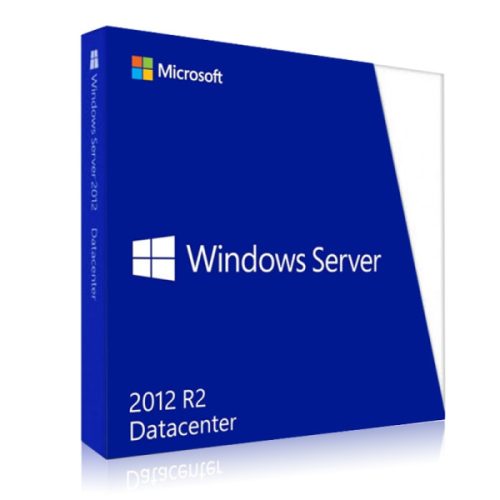
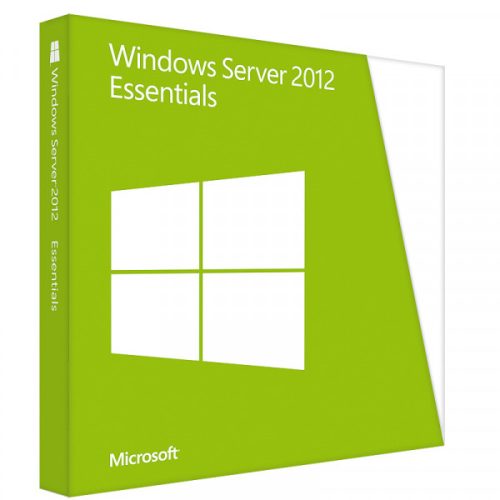
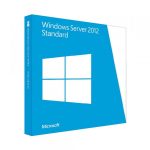

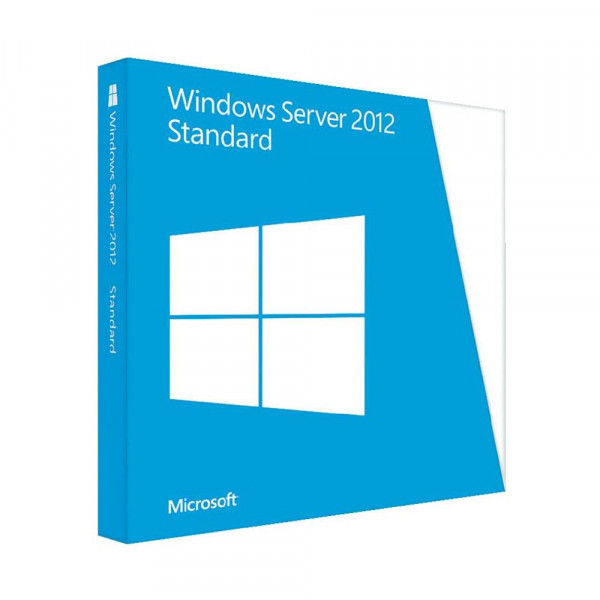
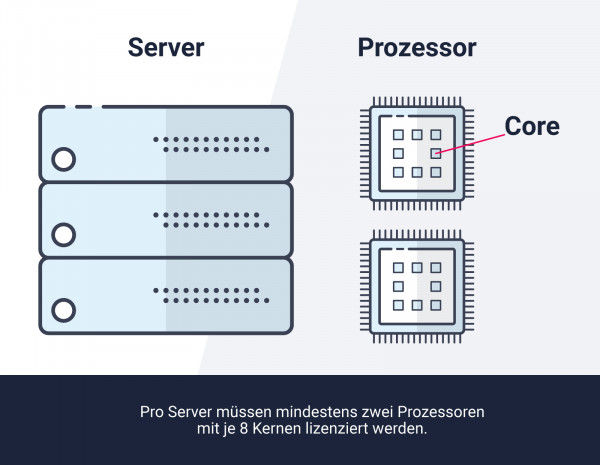
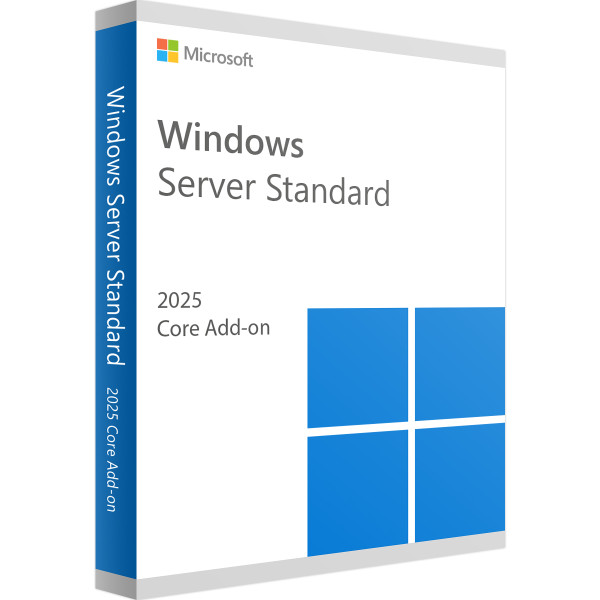

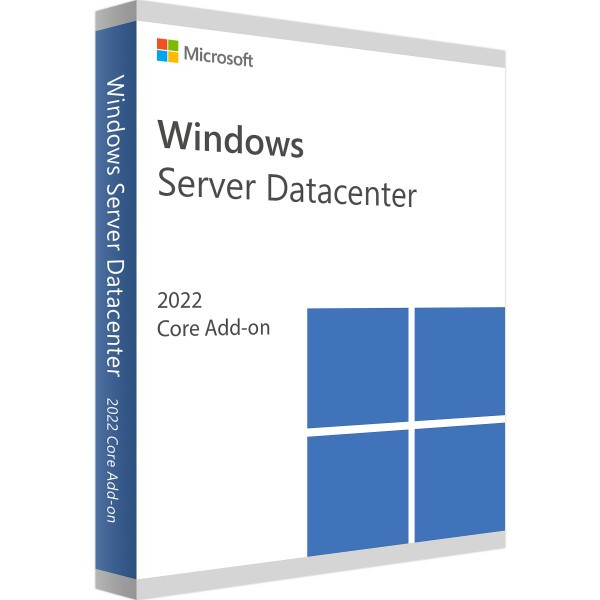
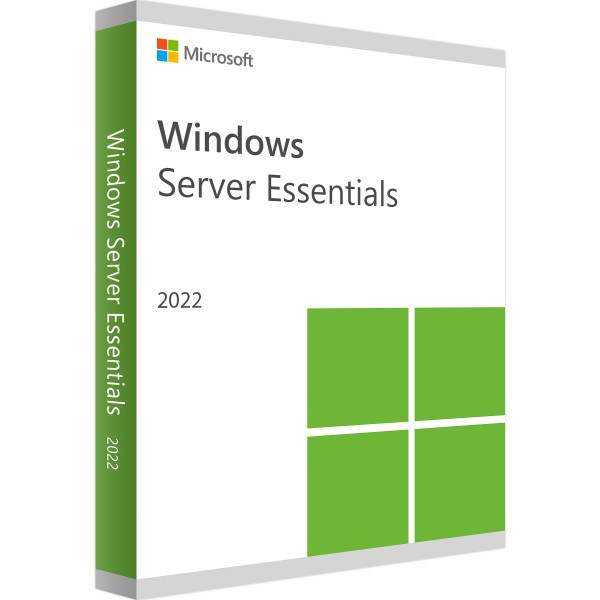
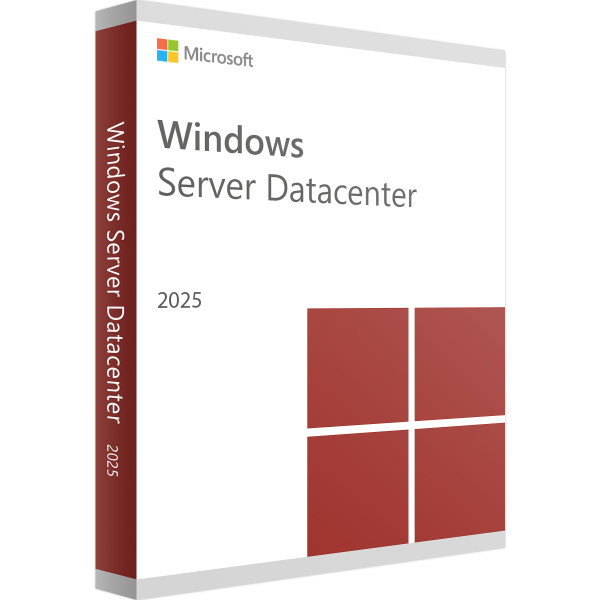
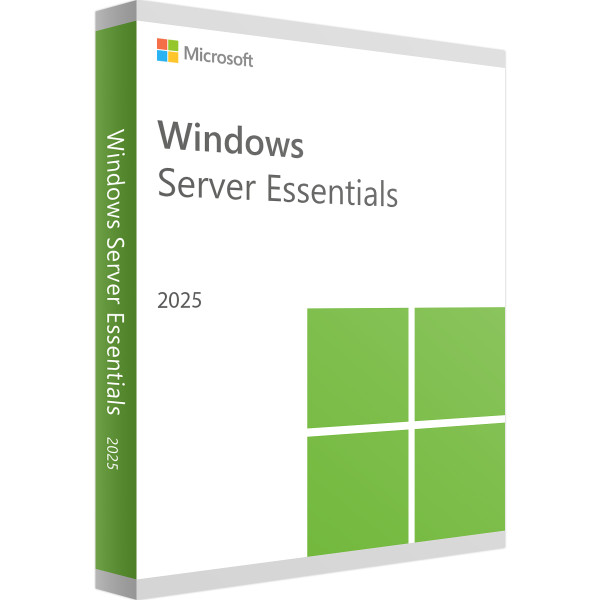
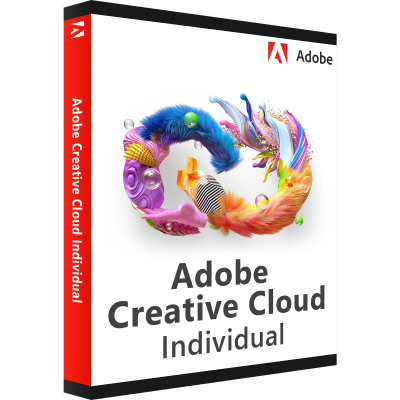
Reviews
Clear filtersThere are no reviews yet.